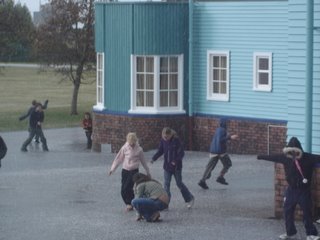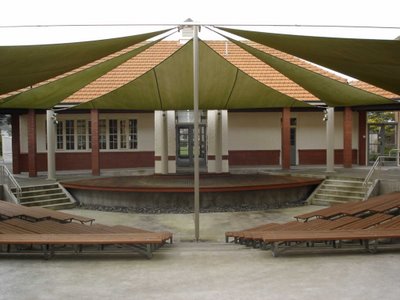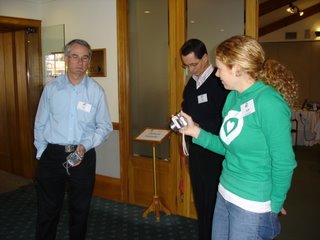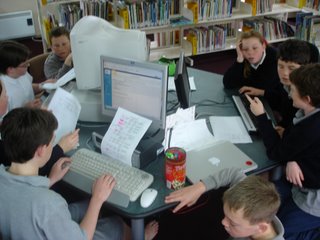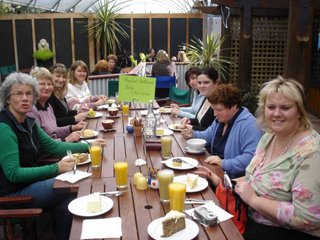
Last week 20 Bard Wired Junior classroom teachers visited two schools in Wanganui to observe specifically in the Junior school (Y1 -3) examples of: "Effective use of ICT, Inquiry Learning, Thinking Skills and Innovative classroom ideas"
Lots of positive feedback from all teachers involved that now other teachers in our schools are asking "When is the Middle Schools visit?" What we saw in the schools we visited was not rocket science or revolutionary in any way but for some teachers an affirmation of the things they are already doing and for others a wealth of ideas and inspiration. A great opportunity for our busy teachers to take time out to look into other classrooms, reflect on their own practise and to discuss this with colleagues. I think that the schools we visited could return the visit to our cluster schools and gain just as much as we did from the experience.
Our first visit was to
Castlecliff School and Mary Dean who was a fantastic host - our group found her to be a dynamic speaker and very knowledgeable about using ICTs in the classroom.
The school is well resourced with a well managed network, at least 4 computers in every classroom and a full suite of computers - so access is no issue here. Mary admits that school-wide itegration of ICTs has slumped since coming out of an ICTPD contract 2 years ago. She is trying to boost this along by using CRT time to work with children from throughout the school & hopefully teachers will take this onboard back in their own classrooms (uuummmm - tried this approach before...) Some food for thought about 'Cluster sustainability' after the contract is ended which we will be discussing @ the Regional Meeting on Friday -
i am beginning to get some opinions about this topic but will blog another time on this.
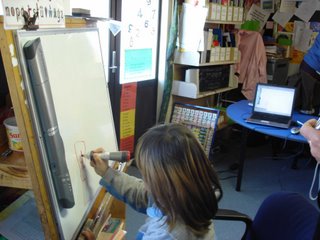
In the Junior Classrooms (
lots of pics on Flickr) we saw a lot of use of Digital Photography to support literacy - wordbank pictures, shared writing, writing from experience, visual cues etc. Children's illustrations created in
Revelation Natural Art.
Letterland software, PM reader software and
Clicker were all used in tandem with the literacy programme. Mary uses a Mimeo to record Newsboard each morning (we weren't early enough to see this in action). In this picture you can see the child writing by the Mimeo & it is recorded on the laptop attached - this can be made into a full interactive whiteboard by setting up the data-projector onto the board (
not sure how it works - bit like smoke & mirrors to me) We then spent some time in the ICT suite as Mary worked with a group who were creating digital stories in
PhotoStory. We had a good look at Clicker which many teachers know only through it's use with our Special Needs children. Mary showed us how she used Clicker to create activities that were relevant to her programme (she has created a huge bank of Clicker resources). She also showed us how to batch file photo's in
Irfanview - maybe a bit hard for most of our teachers - who may be best to stick to iPhoto or MS Picture Manager to start with...
Photofiltre was another free tool that we looked at.
Stratford Primary have most of this software (not Clicker) installed on the laptop pods & St Joseph's on the library & ICT room computers - check it out! Toko & Eltham you don't need any of this stuff - you've got MACS!! :-)
Just up on
BardWired Interact are Mary Dean's PhotoStory resources (learning intentions & instructions) Thanks Mary.
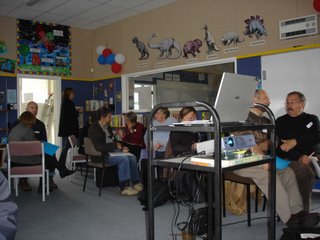 Thankyou Lorraine & team for organising such a worthwhile meeting.
Thankyou Lorraine & team for organising such a worthwhile meeting.


